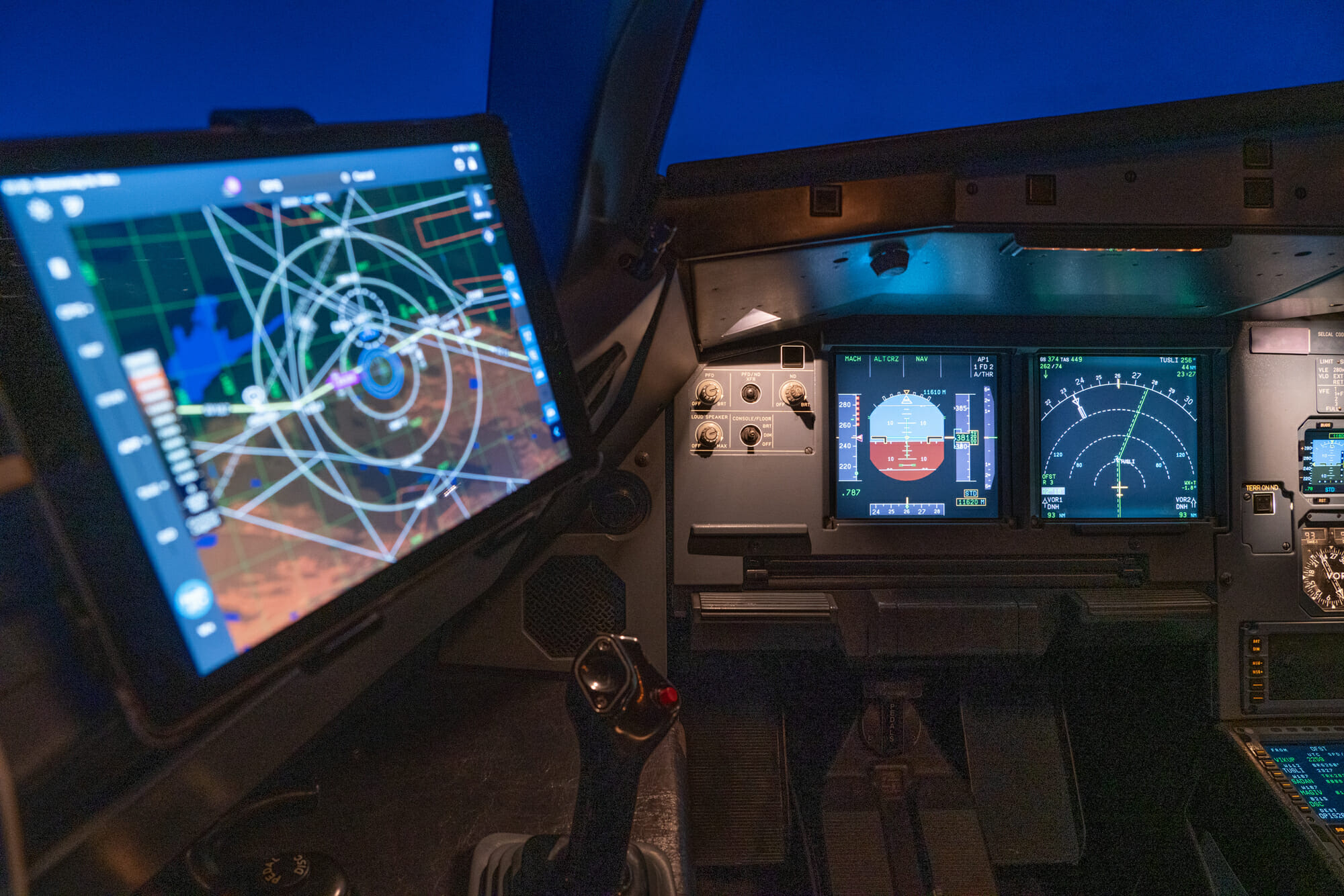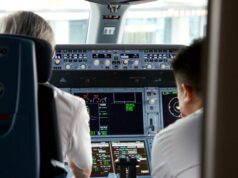Technology has a tremendous impact on every facet of our industry. Advances made in the last few years have allowed companies to operate more efficiently, with lower costs and lower environmental impacts. With the goal of increasing flight safety, technological advances continue to find their way into the flight deck as well. As our access to new technology grows, our day-to-day responsibilities and tasks are altered. Changes within our flight deck environment will continue to take place, and I believe we can take many lessons from the recent industry-wide electronic flight bag implementation which will better facilitate similar advances in the future. As one would expect, the industry was so eager to adapt electronic flight bags because they provided many benefits to both pilots and operators. However, an undertaking that would fundamentally change the way aeronautical charts, company documents and aircraft data is accessed was incredibly complex. Like most things in aviation, changes often bring threats and additional challenges that must be given proper attention.

I like to view technological advances not as replacements for our attention and energy, but as tools that allow us to refocus our efforts on the status of our aircraft and general situational awareness. It can be difficult to learn and become accustomed to new technology, especially when it does not work as designed. The benefits of electronic flight bags greatly outweigh the risks and offer significant operational benefits. Pilots can enjoy a streamlined approach to updating manuals and accessing aircraft and operational information, while companies are able to enjoy significant fuel savings and supply information to an entire pilot group with the push of a button. While they do not change the way we perform our duties, they increase efficiency and eliminate a significant amount of paper waste.
Though I do not believe anyone currently flying with an electronic flight bag reminisces about the days of thirty-pound flight kits and lengthy paper chart revisions, we must remember that the process of implementing electronic flight bags into flight operations was not without its hiccups. While a bit hard to imagine given their prevalence in everyday life today, these devices were not terribly widespread when they were first approved by operators to replace paper charts and manuals. Many pilots were learning how to operate and use the device for the first time, having had no previous experience with like devices in their personal life. Combine that with their critical nature with respect to flight safety and it became a daunting task for many. Any issues with its operation could have had severe consequences, resulting in the need for new procedures that addressed situations such as device failures and operating system/application download issues. That accounts for the long implementation process, as it needed to be proved that pilots had received sufficient training and would be capable of safely handling failures that may arise.
New technology implementation is something we will see again and again in our careers. In fact, if you are at the early stages of your career, at some point, you will likely work with technology that has yet to be developed or even envisioned. As with electronic flight bags, we must continue to embrace new technology while recognizing the threats it may introduce. Though some things may offer incredible benefits, there is no such thing as “fail safe,” and it is important to understand their limits and have a plan of action should something not work as expected. Take the necessary time to understand the technology you work with and utilize company materials to ensure you can use it safely before stepping foot into the flight deck. Reflecting on the electronic flight bag implementation will help us all in the future as more advances come our way.























































































































